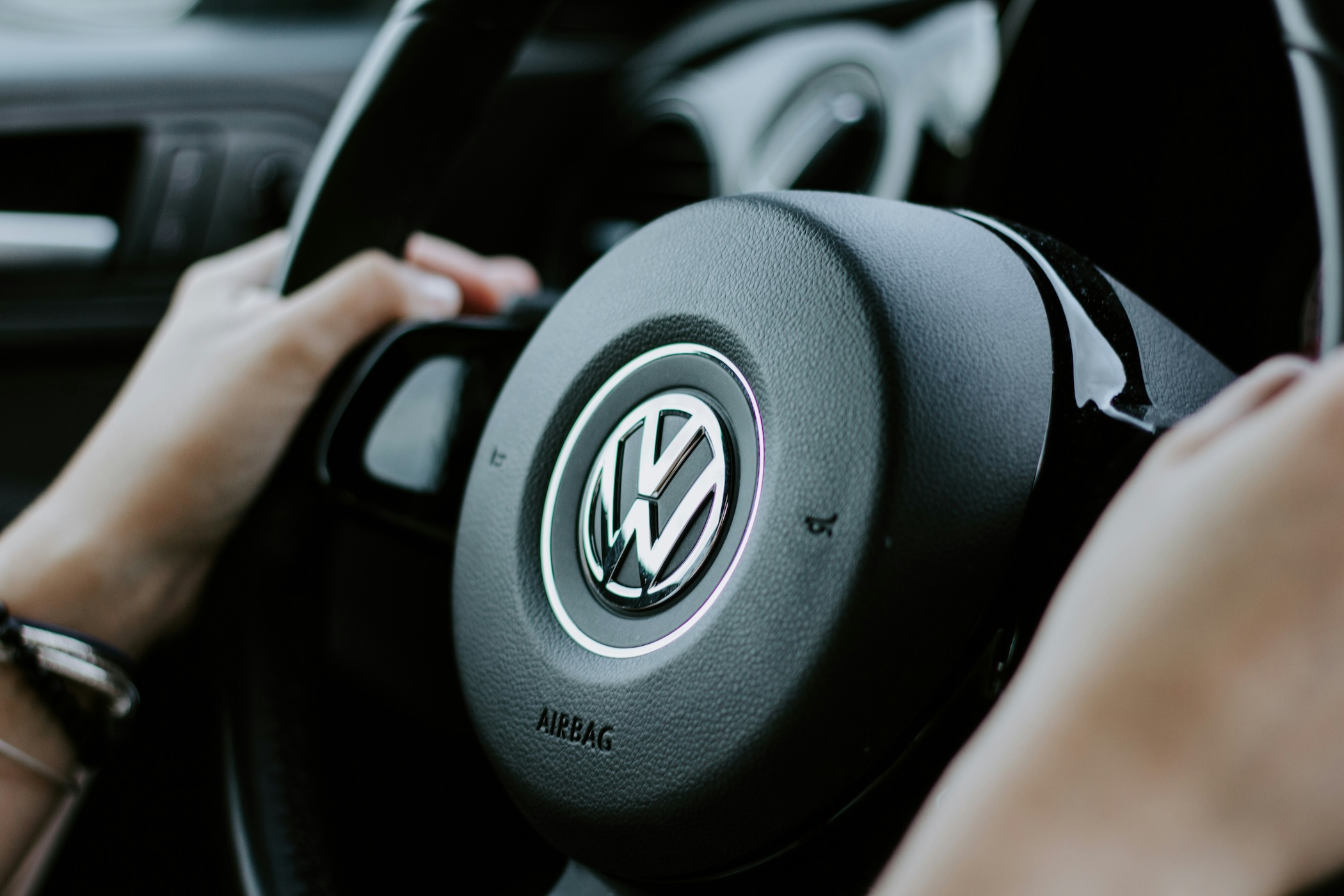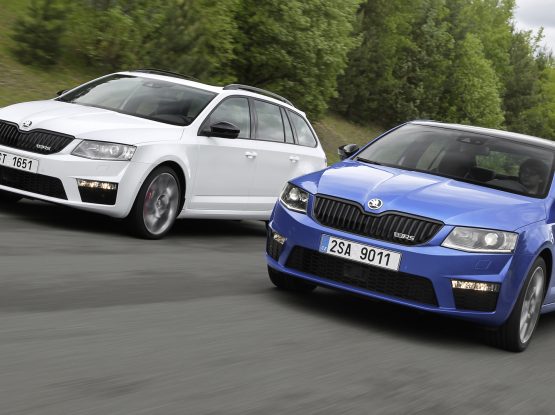Volkswagen’s DSG (Direct Shift Gearbox) transmissions are found in hundreds of thousands of vehicles, offering smooth, quick shifts and a sporty driving experience. For many VW owners, the DSG is one of the standout features of their car, providing both performance and efficiency. However, some versions of these gearboxes have been plagued by reliability issues over the years.
Whether you’re currently dealing with a problematic gearbox, or just want to stay informed and know what to look out for, our guide has you covered.
What is a DSG gearbox, and how does it work?
At its core, the DSG (Direct Shift Gearbox) is a highly sophisticated transmission system, combining the best features of both manual and automatic gearboxes. Although the internal mechanics are quite complex, here’s how it works in simple terms:
A DSG is essentially made up of two gearboxes and two clutches, all housed within a single unit. These two gearboxes operate in tandem—one handles the odd-numbered gears, while the other takes care of the even-numbered gears. This setup allows the DSG to be incredibly efficient when shifting between gears.
When you accelerate or decelerate, the software controlling the DSG pre-selects the next gear in advance. So, while one gearbox is engaged, the other is already preparing to switch to the next gear. This means when it’s time to shift, the change happens in the blink of an eye—in a matter of milliseconds. This results in near-instantaneous gear changes that are almost imperceptible to the driver.
The key benefit of this setup is improved acceleration and seamless driving, giving you the performance of a manual with the convenience of an automatic. The DSG offers smoother shifts and better fuel efficiency compared to traditional automatics, which is why it’s such a popular choice in performance-oriented cars like the VW Golf GTI.
What are the different VW DSG gearboxes?
The key difference in DSGs is whether they are fitted with dry or wet clutches.
Volkswagen offers several DSG (Direct Shift Gearbox) transmissions, each tailored for different vehicle types.
The 6-speed DSG (DQ250), introduced in 2003, is common in smaller models like the Golf and Jetta, handling up to 250 Nm of torque.
The 7-speed DSG (DQ200), launched in 2008, uses a dry clutch and is typically found in compact cars, managing up to 250 Nm.
The 7-speed DSG (DQ381), introduced in 2014, features a wet clutch and is used in performance models like the Golf GTI and Audi S3, handling up to 400 Nm of torque.
The 6-speed DSG (DQ500), launched in 2012, is designed for larger vehicles like the VW Touareg, handling up to 500 Nm of torque with a wet clutch.
For high-performance cars like the Audi RS3, the 7-speed DSG (DQ700), introduced in 2015, can handle up to 700 Nm of torque with a wet clutch.
What are the most common DSG problems in Volkswagen vehicles?
1. Mechatronics Unit Failure
Erratic or jerky shifting, delayed gear engagement, or the transmission entering “limp mode” can occur when the mechatronics unit, which controls shifting, fails due to electrical or mechanical faults. This is often caused by wear and tear, moisture, or electrical malfunctions in the unit.
2. Clutch Wear and Premature Failure
Slipping gears, delayed or rough shifts, and noticeable drops in performance typically happen when the clutches wear out. The clutches in DSGs are prone to faster wear, especially in stop-and-go driving or aggressive driving habits, leading to premature failure. This normally occurs at about 100,000 to 130,000 kilometers
3. Software Glitches
Unresponsive, jerky, or delayed shifting, especially during acceleration or deceleration, can be traced back to software bugs or outdated software controlling the transmission. These glitches may cause the system to mismanage gear selection, leading to rough shifts.
4. Low or Contaminated Fluid
Hard shifts, rough transitions between gears, or the transmission overheating can occur if the DSG fluid is low or contaminated. Since DSG transmissions are highly sensitive to fluid levels and quality, inadequate maintenance can lead to poor shifting performance and overheating. Note that in 2012, Volkswagen changed the specification of the oil used in the transmission which resulted in better longevity.
5. Overheating
When the gearbox enters “limp mode” or experiences sluggish performance, it may be a result of overheating, which is common under heavy loads like aggressive driving or towing. Insufficient cooling in performance models or higher-torque engines can lead to excessive heat buildup in the transmission.
Are there any reliable DSG gearboxes?
In general, wet-clutch DSG variants tend to be the most reliable, especially those like the DQ250 and the DL series found in vehicles with transversely mounted engines. These wet-clutch systems are typically more robust, as they’re better at handling heat and wear compared to their dry-clutch counterparts.
Another key factor to consider is the age of the vehicle and, by extension, the age of the DSG unit. Volkswagen made a significant change to the oil specification for the DSG transmission in 2012. Vehicles produced after this point are likely to have used the improved mineral oil from new, which is less prone to breakdown and should result in better overall gearbox health.
Additionally, it’s worth noting that Volkswagen issued a recall in some markets for issues related to the Mechatronic unit in DSG transmissions produced between 2008 and 2014. These faults could impact shifting performance and overall reliability, so opting for a newer vehicle with a more recent DSG unit is generally a safer bet if your budget allows.
Taking care of a VW with a DSG gearbox
Maintaining a VW with a DSG gearbox is pretty straightforward if you follow the recommended service intervals and take care of a few key areas. Here’s a guide to help you keep your car running smoothly and avoid common issues:
1. DSG Fluid & Filter Changes
One of the most important aspects of maintaining your DSG gearbox is ensuring that the fluid and filter are changed at regular intervals. Over time, the fluid degrades, leading to reduced shifting performance and potential damage to internal components. Volkswagen generally recommends changing the DSG fluid and filter every 64,000 to 96,000 kilometres, though you should always check your owner’s manual for specific recommendations based on your model. It’s also essential to use the correct fluid for your specific DSG variant, as different gearboxes (like the DQ250 or DQ381) require different types of transmission oil to perform optimally.
2. Mechatronics Unit
The mechatronic unit is essentially the “brain” of the DSG system, controlling the shifting mechanism and clutch engagement. When it starts to fail, you may notice rough or delayed shifting, or in severe cases, a complete failure of the gearbox. The mechatronics unit is a common source of issues in DSG-equipped cars, particularly in models produced between 2008 and 2014, as Volkswagen issued a recall in some markets for faulty units. Regular fluid changes and software updates can help extend the life of the mechatronic system, but if you experience shifting problems, it’s a good idea to have the unit inspected to avoid further damage.
3. Driving Style
The way you drive can have a significant impact on the longevity of your DSG gearbox. Unlike traditional automatic transmissions, DSGs are designed for smooth, fast shifts and can be more sensitive to aggressive driving. Hard accelerations, frequent full-throttle starts, or excessive clutch engagement can place unnecessary stress on the transmission. To help prolong the life of your DSG, focus on driving smoothly, avoiding rapid gear changes, and allowing the gearbox to shift naturally. This reduces the wear on the clutches and keeps the system running more efficiently over time.
4. Software Updates
Volkswagen regularly releases software updates for its DSG gearboxes to improve performance, shift quality, and address minor issues. These updates can enhance the driving experience by optimizing the shifting behavior and fixing known bugs that might cause rough or delayed shifts. If you’re experiencing issues like jerky shifting or hesitation, it’s worth checking with your dealer to see if there’s a software update available for your vehicle. Keeping the software up to date is a simple way to ensure that your DSG continues to function smoothly and efficiently.
5. Avoid Overheating
Excessive heat is one of the biggest enemies of a DSG gearbox. Overheating can cause the transmission fluid to break down more quickly, which leads to increased wear and potential damage to internal components. This is especially a concern if you use your vehicle for heavy tasks like towing, or if you frequently drive in stop-and-go traffic. To help prevent overheating, avoid high-stress driving conditions when possible, and consider installing a transmission cooler if you tow regularly or drive in hot climates. Maintaining proper fluid levels and staying on top of your car’s cooling system will also help keep the DSG at optimal temperatures.
6. Check for Leaks
DSG gearboxes are designed as sealed systems, but over time, seals can degrade and cause fluid leaks. A leaking DSG can lead to a loss of transmission fluid, resulting in poor shifting and long-term damage to the gearbox. Regularly inspect the area around your transmission for signs of fluid leaks, such as puddles under the car or a burning smell from hot transmission fluid. If you notice any leaks, it’s essential to address them promptly by having the seals replaced or the gearbox inspected by a professional to prevent further damage.
7. Use Transmission Modes Wisely
Many modern VW models with DSG gearboxes offer multiple driving modes, including D (Drive), S (Sport), and M (Manual). While these modes offer enhanced performance or a more engaging driving experience, they can put additional strain on the gearbox, especially when used in heavy traffic or for daily commuting. The Sport and Manual modes tend to engage the gearbox more aggressively, which can lead to quicker wear on the clutches and increased heat generation. For day-to-day driving, it’s best to stick to Drive mode and reserve Sport or Manual for occasional spirited driving.
8. Routine Car Maintenance
Keeping up with general car maintenance is crucial for ensuring the overall health of your DSG system. While regular oil changes and fluid checks are critical for the gearbox itself, maintaining the rest of your vehicle—such as the engine, brakes, and cooling system—can also have an indirect impact on the transmission’s longevity. Regular maintenance ensures that your car’s engine is running efficiently, which in turn reduces the strain on the gearbox. Additionally, keeping up with brake fluid and coolant changes can prevent excessive heat buildup, which is beneficial for the DSG.
9. Listen for Strange Noises
If you start hearing unusual noises like whining, grinding, or clunking during shifting, it’s a sign that something may be wrong with your DSG gearbox. These noises could be the result of worn clutches, a failing mechatronics unit, or low transmission fluid. Any abnormal sounds should not be ignored, as they could signal a significant issue that may lead to costly repairs if left untreated. If you notice strange noises, it’s a good idea to have your vehicle inspected by a professional to identify and fix the problem before it worsens.
10. Regular Inspections
While routine maintenance is essential, having your car’s DSG gearbox inspected periodically by a qualified mechanic is another smart move. During regular service visits, your mechanic can check for early signs of wear and tear, such as clutch wear, fluid degradation, or software issues. Early detection of problems can save you from expensive repairs down the line, and ensure that your DSG continues to perform well. If you notice any changes in how the car shifts, or if you experience hesitation or jerky gear changes, don’t wait—schedule an inspection to catch potential issues early.
Find a trusted Volkswagen service centre in Perth
At Elite Euro, we understand that your Volkswagen is more than just a vehicle—it’s a part of your lifestyle. When it comes to maintaining and repairing your VW’s DSG gearbox or any other transmission-related concerns, our expert team in Perth is here to provide top-quality service. With our comprehensive knowledge of Volkswagen systems, we offer transmission fluid changes, mechatronics repairs, and diagnostic scans to keep your gearbox running smoothly. We use genuine VW parts and state-of-the-art equipment to ensure that your transmission is always in optimal condition.
Whether you’re in need of routine transmission maintenance or more complex repairs, you can trust us to deliver reliable, manufacturer-approved service. Contact Elite Euro today, and let us help you keep your Volkswagen’s transmission—and your driving experience—in peak condition for years to come.




